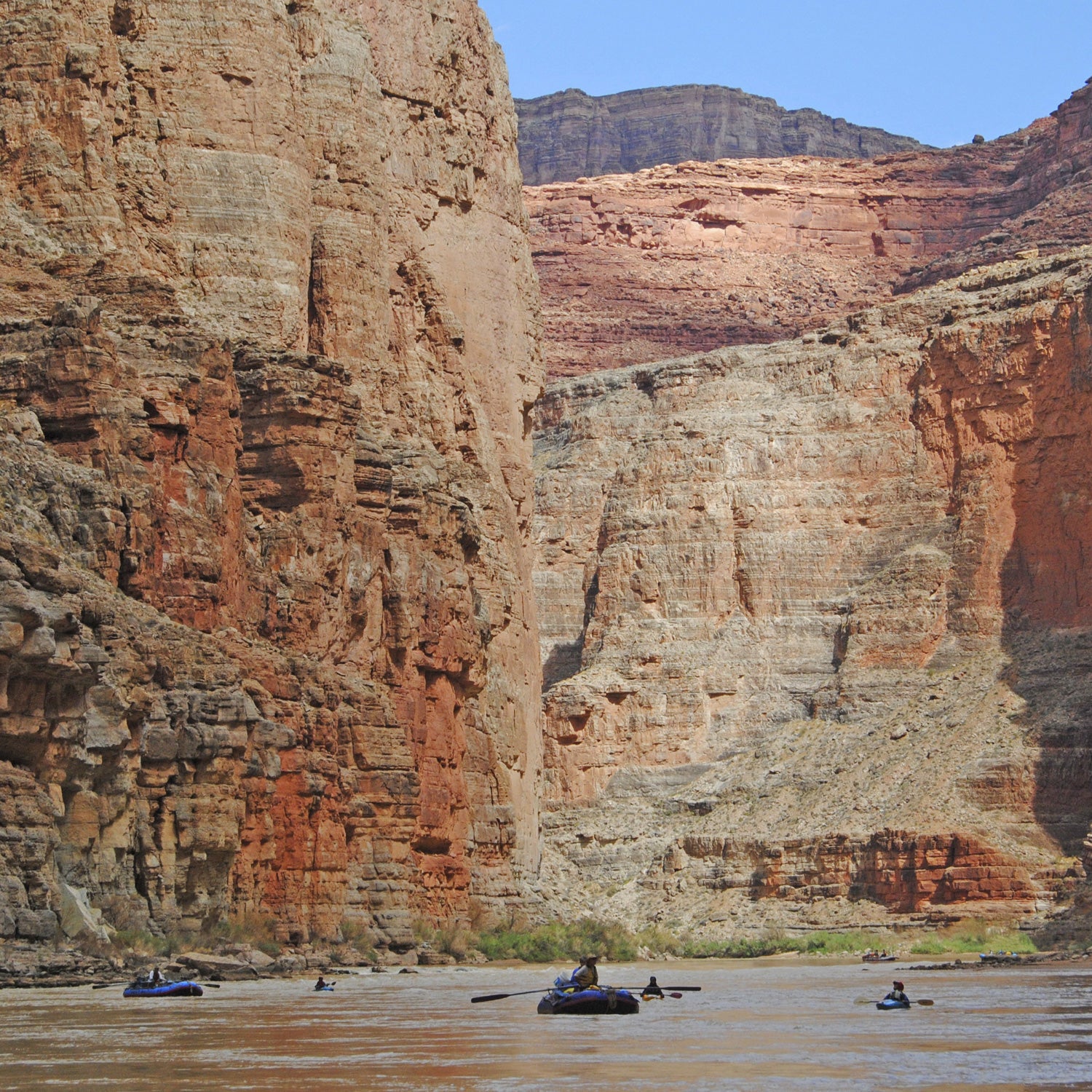A released today by the Interior Department’s inspector general revealed a years-long pattern of sexual misconduct on Grand Canyon river trips conducted by National Park Service boatmen, contractors, and other federal employees. The report, spurred by a letter sent by 13 alleged victims to Interior Secretary Sally Jewell, cited some 35 incidents spanning 15 years. And though it doesn’t name the subjects of its investigation, the report focused on three former and one current Park Service employees, identifying them only as Boatman 1, Boatman 2, Boatman 3, and Supervisor 1.
“We found evidence of a long-term pattern of sexual harassment and hostile work environment in the GRCA River District,” the report stated, using the acronym GRCA for Grand Canyon National Park.
The National Park Service, in addition to operating and maintaining Grand Canyon National Park, also runs about a dozen river trips a year for employees and contractors to conduct science and restoration. These trips are outfitted by the National Park Service boat shop, which functions like the government’s in-house outfitting service. As with the highly coveted private and commercial trips that run as long as three weeks, participants live together in the canyon, cooking all of their meals together, sleeping in close proximity, and navigating the river together. Drinking, partying, nudity, and general excess are standard fare on private and commercial trips. But those trips aren’t funded by taxpayers.
“We found evidence of a long-term pattern of sexual harassment and hostile work environment in the River District.”
In some ways the report confirms that federal boatmen can be as predictably vulgar and hedonic as their private-sector counterparts. Commercial boatmen are some of the most educated and informed interpreters of Grand Canyon geology and ecology. They're also famous drinkers and tellers of off-color jokes. The federal employees in question seem to have taken that a step farther.
According to the federal audit released today, one river district employee said that the three boatmen allegedly tried to “get laid as much as possible” and had “some sort of wager . . . or challenge between the three of them . . . to see who would get laid the most.” The document describes a litany of serious workplace offenses ranging from unwanted groping and photographing a woman from beneath her skirt to one alleged rape of an intoxicated woman that went unreported.
Women who did report harassment were fearful of retaliation and believe they were held to a higher standard than their male counterparts. The report details an instance in which two alleged victims of sexual misconduct were themselves disciplined for drinking from and passing around a penis-shaped straw and “twerking” on a park service river trip. The punishment—in one case a 14-day suspension—was later found to be “unfair and was out of proportion to discipline administered in other cases of employee misconduct.”
Not surprisingly, the report states, “alcohol consumption during river trips may have contributed to those incidents.” Until 2014, alcohol was permitted on government trips but only during off-duty hours (in the evenings). As of 2015, alcohol has been prohibited on all government Grand Canyon trips.
The Grand Canyon has always attracted misfits and iconoclasts who feel more comfortable in the isolated world at river level than in society. Time moves slower on the river, not just from day to day, but culturally. A human resources specialist who assisted with the report called the culture at the bottom of the canyon a “good ol’ boy network.” Another interviewee who witnessed several of the incidents defended two of the three boatmen as “free spirits” who would “joke around” and told “off-color jokes.” There’s a difference, however, between pranks and harassment.
For their offenses, two of the three boatmen served suspensions and then resigned with their federal benefits. The supervisor retired last spring. Boatman 3 is still employed at the boat shop. All were allowed to remain anonymous in the report.


